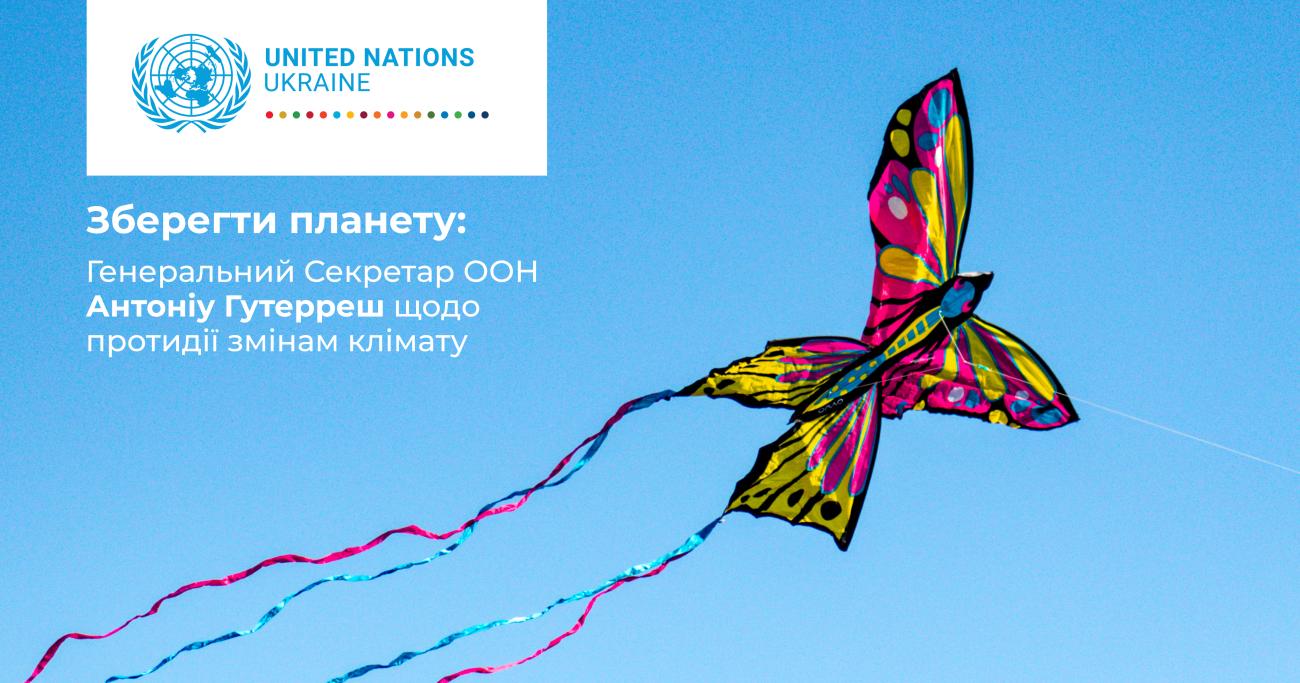Secretary-General's remarks to the media following the Informal Leaders Roundtable on Climate Action

[as delivered]
Good morning, everybody.
I convened this meeting with Prime Minister [Boris] Johnson for a very simple reason.
It is a wake-up call to instill a sense of urgency on the dire state of the climate process ahead of COP26.
On Friday, the United Nations Framework Convention on Climate Change issued a report on the Nationally Determined Contributions, the commitments, of all Parties to the Paris Agreement.
Based on the present commitments of Member States, the world is on a catastrophic pathway to 2.7-degrees of heating, instead of 1.5 we all agreed should be the limit.
Science tells us that anything above 1.5 degrees would be a disaster.
To limit temperature rise to 1.5 degrees, we need a 45 per cent cut in emissions by 2030 so we can reach carbon neutrality by mid-century.
Instead, the commitments made until now by countries imply an increase of 16 per cent in greenhouse gas emissions – not a decrease of 45 percent – an increase of 16 percent in greenhouse gas emissions in 2030 compared to 2010 levels.
This means that unless we collectively change course, there is a high risk of failure of COP26.
So, today, I asked leaders to do what is needed to make sure COP26 is a success and that it marks a true turning point.
On the way to COP26, the international community needs to deliver on three fronts.
First, keeping the 1.5-degree goal within reach – and all the interventions today agreed that 1.5 degrees is the limit we should respect.
Second, delivering on the promised $100 billion dollars a year for climate action in developing countries. And today, I was happy to see many countries recognizing that it is essential to transform this commitment into a reality. We will see how it happens. It is a matter of trust that it is absolutely essential to solve.
Third, scaling up funding for adaptation to at least 50 per cent of total public climate finance.
We are not yet there. But today, a few countries, namely Sweden and Denmark, have announced commitments of 50 percent or more, and I think that this idea that developing countries are already suffering so much, that it’s not enough to support them in reduction of emissions, it’s necessary to support them in building resilience for their communities, for their infrastructure. I believe that this 50 percent might gain traction, but we are still not yet there.
On mitigation, the Intergovernmental Panel on Climate Change says that the 1.5-degree goal is still in reach.
But we need a dramatic improvement in Nationally Determined Contributions from most countries.
I understand the principle of common but differentiated responsibilities.
Developed countries need to take the lead.
But it is also essential for several emerging economies to go the extra mile and to effectively contribute to emissions reductions.
We especially need leadership from all G20 members.
They represent 80 per cent of greenhouse gas emissions and there was a consensus in the meeting today that the next G20 meeting will be absolutely essential to guarantee the success of the COP.
The bottom line is that we need decisive action now around net zero commitments from all countries and the private sector.
I want to mention one specific challenge – energy.
Governments must shift subsidies away from fossil fuels and progressively phase out coal use.
If all planned coal power plants become operational, we will not only be clearly above 1.5 degrees – we will be well above 2 degrees.
The Paris targets would go up in smoke.
OECD nations need to end coal use by 2030.
Developing nations need to follow suit by 2040.
We need coalitions of solidarity – between countries that still depend heavily on coal and countries that have the financial and technical resources to support transitions, because it is essential that no more coal power plants are built.
On finance, developed nations need to implement their promise to mobilize $100 billion dollars a year for climate action in the developing world from 2021 to 2025.
We failed in 2019 and 2020.
OECD calculations say we are about 20 billion dollars short.
Failure to fulfil this pledge would be a major source of the erosion of trust between developed and developing countries.
Developed nations need to bridge this gap. And I was encouraged by what I heard today.
Increased support from international financial institutions is also crucial.
So is the mobilization of assistance from the private sector – both financial and technological.
Many asset owners and managers and other financial institutions are now shifting their investments toward a decarbonized, sustainable and resilient economy.
But these private finance flows will not cover the immediate needs of the many countries that need support now, or who cannot borrow money because of their debt burden.
Again, developed nations need to step up.
Finally, on adaptation, we are seeing indeed that all countries are increasingly vulnerable to climate disruption.
But the developing world is the least able to adapt and build resilience. As I mentioned, it is very important to reach 50 percent of climate finance in adaptation. And I have been asking all donors and financers to commit to that allocation.
Overall, my message this morning, and to the Conference of Parties in November, is that we need decisive action now to avert climate catastrophe.
And for that we need solidarity.
Saving this and future generations is a common responsibility.
I am fully ready to support Prime Minister Johnson and his team in their constant efforts to bring the world back on track. I thank you.



